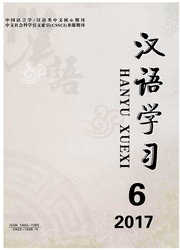

 中文摘要:
中文摘要:
在足量原则作用下,字面义表示[许可]的情态结构可以隐涵[非必要],表示[免除]的情态结构可以隐涵[非禁止],这两种隐涵义对语境的依赖较小。在不过量原则的作用下,[许可]可以隐涵[必要],[免除]可以隐涵[禁止],这两种隐涵义对语境的依赖较大,只有在面子威胁语境中才能被激活。根据礼貌原则,如果话语有可能威胁到听话人的面子,说话人倾向于使用信息量较小的表达方式。这种现象不但存在于道义情态范畴,也存在于其他具有信息量等级性的范畴中。
 英文摘要:
英文摘要:
According to Q1 principle the structures which literal meanings are "permissive" can get implicature "not necessary", and "exempt" can get implicature "not forbidden". According to Q2 principle the structures which literal meanings are "permissive" can get implicature "necessary", and "exempt" can get implicature "forbidden". The former is quite context- independent while the latter is context-dependent and only exists in face-threatening context. When the utterance may threaten hearer's face, speakers usually express small amounts of information according to politeness principle. These phenomen exist in modality and other categoris which members have different amount of information.
 同期刊论文项目
同期刊论文项目
 同项目期刊论文
同项目期刊论文
 期刊信息
期刊信息
